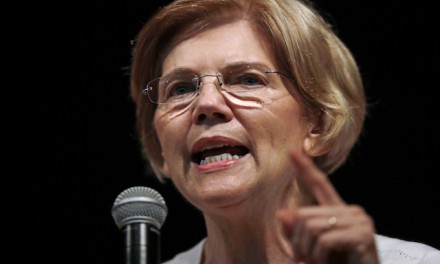When it comes to congressional legislation, we should never let the perfect become the enemy of the good. Likewise, we should never let what is currently politically convenient become the enemy of the good. Senate Majority Leader Mitch McConnell’s prescription for health care is ramming through a health care bill with little debate and few amendments for the good of political expediency. That is the epitome of the enemy of the good for the American people. A more thoughtful, transparent process would lead to a real cure for our country’s health care challenges rooted in federalism.
Health care represents one-sixth of our national economy and impacts the lives and livelihoods of nearly every American. Rushing this bill through is reckless and irresponsible. I am not aware of a single Republican member in the Senate who doesn’t want to vote yes in order to begin the unwinding of the fatally flawed Obamacare system. The path to yes, and possibly even some bipartisan agreements, will be found in the deliberative process the Senate is supposed to be known for, including serious debate about choices and decisions being made at state, local and, above all, the patient-doctor level.
Disagreement in our nations capital shows one thing – we don’t really know how to fix the health care problem.
Big government requires massive amounts of spending to potentially deliver only incremental improvements at best. Health care will not change with incrementalism – it requires quantum change and transformation.
Rather than whipsawing 300 million people every other election with politically divisive battles for incremental changes, we should introduce health care to the ultimate laboratory of democracy – the states. A big dose of federalism-driven experimentation at the state level will be the fastest and best way to get to the “good” health care solution everyone claims to be pursuing.
There are a few nods toward state-driven solutions within the current Senate plan. If the administration fulfills its promises to give the states true no-strings-attached flexibility, it could be the best health care reform for poor Americans that we’ve seen in decades.
But the Senate plan still has a long way to go to create the affordable system of health care that improves health outcomes, which is what Americans deserve.
Utahs Rep. Rob Bishop was named chairman of a new federalism task force last week. In announcing the seven Republicans and six Democrats in the group, Speaker Paul Ryan released the following statement:
“Federalism is not a Republican or Democrat principle, but an American principle -and one that is integral to a thriving culture and economy. But in recent years, the principle of federalism has been slowly chipped away at by an overzealous federal government. Under Chairman Bishops leadership, the Task Force on Intergovernmental Affairs will study ways to restore the proper balance of power between the federal government and states. …”
Imagine what kind of health care innovation could occur if a state like Utah was truly empowered to craft, experiment and deliver health care solutions that work best for the people who live here. That would be federalism at its finest. Utah knows how to care for those in poverty and provide services to the most vulnerable among us better than anyone in Washington. And if Vermont wants to have a single-payer system, let them. Just dont force all the other states into the same solution. Federalism allows ideas and policies to compete in the real world.
Sen. Ben Sasse of Nebraska is proposing true portability between jobs and across state lines to halt the expanding pool of Americans with preexisting conditions. Sen. Mike Lee is calling for states to be able to opt-out of Obamacare systems that dont work for their citizens. There are countless ideas from the left and the right that could be dynamically applied at the state level.
No solution for the failing and flailing Obamacare system will be perfect – especially if it is coming from lawmakers infected with Potomac fever, rushing a bill through for political expediency. The real cure for health care will come from a heavy dose of federalism – state-driven solutions based on the needs and desires of the people.
Boyd C. Matheson is president of Sutherland Institute, a conservative think tank that advocates for a free market economy, civil society and community-driven solutions.
Credit: By Boyd Matheson For the Deseret News
Copyright (C) 2017 Deseret News Publishing Co.
—-
This content is published through a licensing agreement with Acquire Media using its NewsEdge technology.



















Recent Comments